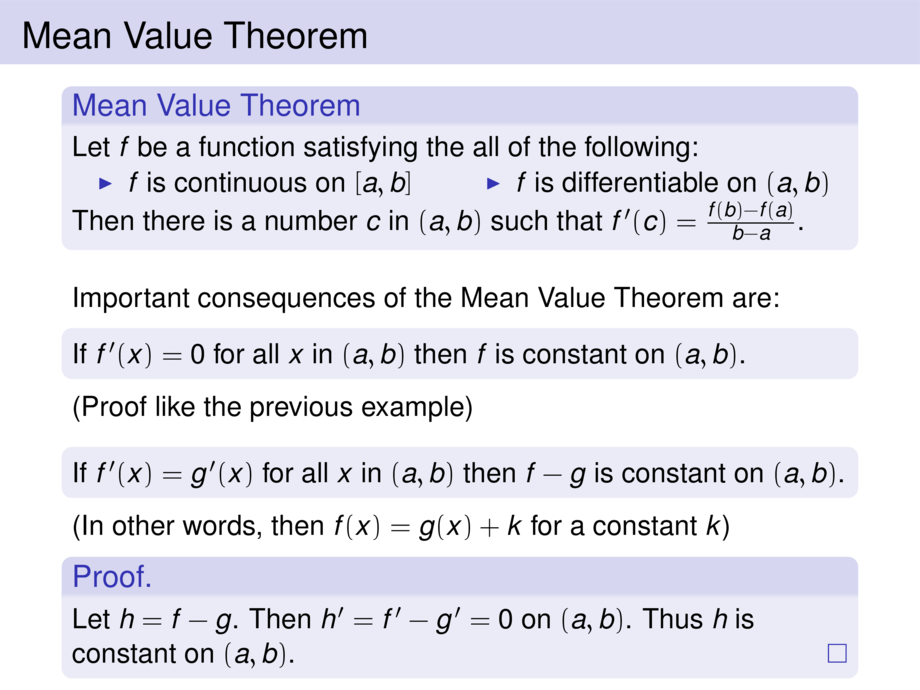



































































































66/66
\begin{frame}
\frametitle{Mean Value Theorem}
\meanvalueshort
\bigskip
Important consequences of the Mean Value Theorem are:
\pause
\begin{block}{}
If $f'(x) = 0$ for all $x$ in $(a,b)$ then $f$ is constant on $(a,b)$.
\end{block}
\pause
(Proof like the previous example)
\pause\medskip
\begin{block}{}
If $f'(x) = g'(x)$ for all $x$ in $(a,b)$ then $f-g$ is constant on $(a,b)$.
\end{block}
\pause
(In other words, then $f(x) = g(x) + k$ for a constant $k$)
\pause
\begin{proof}
\pause
Let $h = f - g$. \pause Then $h' = f' - g' \pause = 0$ on $(a,b)$. \pause
Thus $h$ is constant on $(a,b)$.
\end{proof}
\vspace{10cm}
\end{frame}

